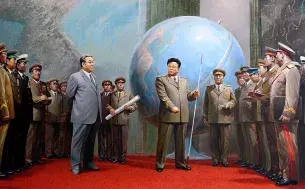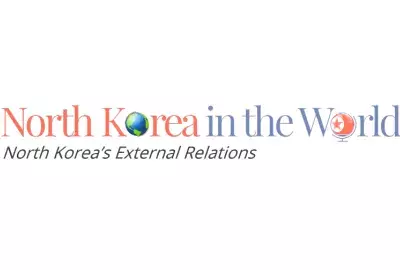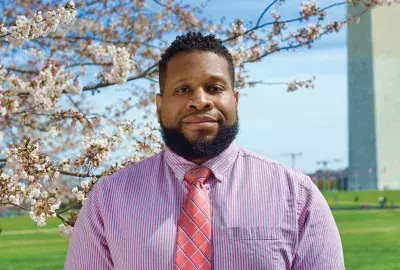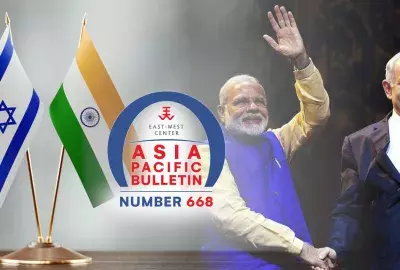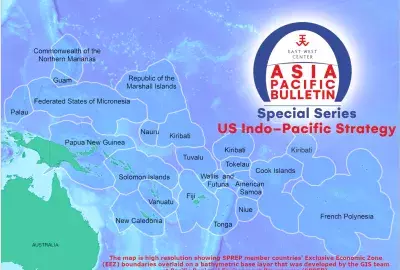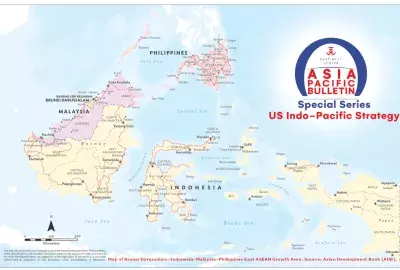Error message
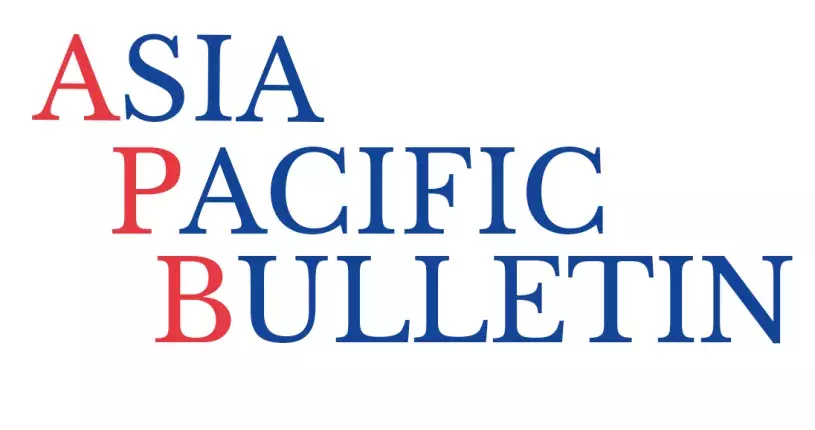
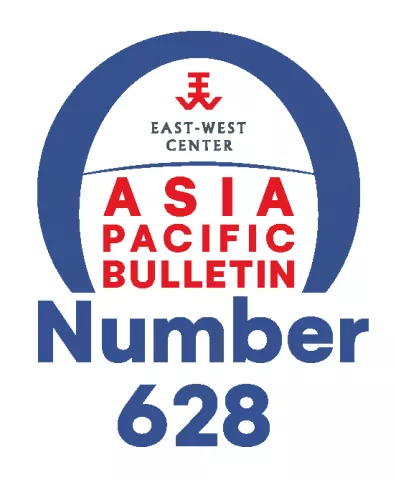
| Glyn Ford, Director of Track2Asia and five-term Member of the European Parliament, elucidates how from a high point in 2002, EU-North Korea "relations began what was to prove a long and slow atrophication into seeming irrelevance…" |
| for additional titles in the Asia Pacific Bulletin |
| This article is a part of the North Korea in the World Special Series, a joint project between the National Committee on North Korea and the East-West Center that examines North Korea's external relations. |
The European Union (EU)—then 15 member states prior to its 2004 enlargement to 25—formally established diplomatic relations with Pyongyang in 2001 after a high-level visit to Pyongyang by Göran Persson, Swedish Prime Minister and then President in office of the European Council of Ministers. There, accompanied by EU security affairs chief Javier Solana and EU foreign affairs commissioner Chris Patten, he met with Kim Jong Il. Less than five years before, Commission officials were under orders not to even speak to officials from North Korea, officially the Democratic People's Republic of Korea (DPRK). However, at this meeting, the two parties agreed to establish both Political and Human Rights Dialogues; the latter modeled on the EU’s ongoing Human Rights Dialogue with Beijing. This move by the EU followed pressure from President Kim Dae-Jung in Seoul for allies to normalize relations as part of his ‘Sunshine’ policy.
Some of the EU’s peripheral member states had long-standing relations with Pyongyang, in some cases dating back to before they had even joined the EU, with Finland, Sweden, and Denmark establishing relations in 1973, Austria in 1974, and Portugal in 1975. However, only Sweden had chosen to establish an Embassy, with the rest represented from Beijing. At the turn of the century, that pressure from Seoul resulted into most of the remaining dominoes falling in place. Italy and the UK jumped the gun in 2000, with Tony Blair and UK Foreign Minister Robin Cook agreeing to extend diplomatic recognition and establish an embassy en route to the Seoul Asia-Europe Summit.
In 2001, Germany, Greece, the Netherlands, Belgium, Luxembourg, and Spain stochastically established diplomatic ties with North Korea, with Ireland playing catch-up in 2003. Now, most EU members choose to be represented via their Embassies in Seoul with Beijing a second choice. With the 2004 and 2007 enlargements, the EU added Bulgaria, the Czech Republic, Poland, and Romania to its ranks. All the new member states, save Estonia, had ties with North Korea—dating back to the Soviet era for some members—or soon established diplomatic relations with Pyongyang.
The EU’s approach towards the Korean Peninsula was outlined in European Council Conclusions of October 9 and November 20, 2001. After the policy trickled down through EU Institutions in Brussels, the final result was the publication of the DPRK Country Strategy Paper in February 2002. From this high point, relations began what was to prove a long and slow atrophication into seeming irrelevance, which was far from being pre-ordained. In 2002, the North Koreans were searching for premises in Brussels for their Embassy. However, it was never to be, as the effort was stymied due to unconvincing objections by Belgium. This decision could have been overturned with support from a majority of EU member states, but this was never to materialize. Worse was to follow, with France—the only holdout in establishing diplomatic relations—serially blocking the accreditation of the DPRK Ambassador to the EU. This Paris could do, as accreditation requires unanimity in the Council of Ministers. Pyongyang was forced to settle for a charge d’affaires ad interim, the formal designation of a deputy temporarily acting for an absent head of mission. This appointment required only a qualified majority in support.
The Human Rights Dialogue was another feature of EU-DPRK cooperation. After the first couple of meetings, Commission officials reported that they were making some, albeit limited, progress. However, this came to an abrupt halt in 2003 when, at the urging of Paris, the Council of Ministers chose to sponsor a Human Rights resolution condemning Pyongyang at the UNHCR without informing the North Koreans. The result was the suspension of the Dialogue. According to Pyongyang’s retrospective commentary voting for the resolution would have been one thing, but the EU’s decision to sponsor it, as North Korea’s only human rights dialogue partner, was entirely another. Not everybody in Brussels and Washington was disappointed by the outcome. As was shown a decade later when Kang Suk Ju, then International Secretary of the Workers Party of Korea, proposed restarting the Dialogue at a meeting with the EU’s External Action Service (EEAS) The offer was rejected, with EU officials privately saying that it would have made Pyongyang “look too good.” The Political Dialogue fared a little better with some hiccups before effective suspension in 2015 after the last of 14 sessions took place in Pyongyang that June. The then Director General of the European Department and current Vice-Foreign Minister, Kim Son Gyong, visited Brussels in 2016 and met with the Commission and the EEAS. Pyongyang considered this visit part of the Dialogue, but Brussels did not.
Between then and now, Brussels has shadowed every ratcheting up of UN and US sanctions and, with micro-aggression, added some small bells and whistles of its own with entities and players absent from the central lists. Recent developments exhibit a further decaying of relations. What was normal is no longer acceptable in Brussels, given the restrictions posed by the most obdurate of its member states. For example, after the Brexit vote, Pyongyang—still blocked twenty years on from opening an Embassy in Brussels—switched its Embassy accredited to the EU from London to Berlin. Admittedly, pandemic lockdowns didn’t help, yet to date, not a single one of the Embassy staff has ever visited Brussels.
Offers from DPRK diplomats to restart the Political Dialogue at the Director-General level were rebuffed. The same is true of London, despite its recent foreign policy re-set to seize its lost opportunities for global leadership once freed from the shackles of Brussels. Similarly, a DPRK request for a meeting on human rights went unanswered by the EU’s Special Representative on Human Rights—Pyongyang wanted to urge the EU not to support the UN’s latest condemnation. While even a visit by the Berlin Ambassador accompanied by the charge d’affaires ad interim, a standard practice when the DPRK embassy in London was accredited to the EU, was judged inappropriate. Two recent attempts by the charge d’affaires ad interim to visit have both been canceled at the last minute by Berlin as they have struggled to agree on an agenda.
From the pattern and trajectory of EU-DPRK relations, one can only conclude two things. First, while Pyongyang is not prepared to speak to the US and South Korea, it is willing to engage with other western powers. However, it is the EU that is more reluctant to speak to them. Second, EU-DPRK relations exist, for the moment, in name only. The lost opportunity may yet prove fateful. With all the EU – and the UK – Embassies in Pyongyang closed Europe has been blind, deaf, and dumb. As the prospect of re-opening nears , for the first time since the EU established diplomatic relations with North Korea in 2001, there are those in Washington who would welcome any dialogue that would provide some insight into Pyongyang's thinking, even a shadowy reflection!

| Glyn Ford, Director of Track2Asia and five-term Member of the European Parliament, elucidates how from a high point in 2002, EU-North Korea "relations began what was to prove a long and slow atrophication into seeming irrelevance…" |
| for additional titles in the Asia Pacific Bulletin |
| This article is a part of the North Korea in the World Special Series, a joint project between the National Committee on North Korea and the East-West Center that examines North Korea's external relations. |
The European Union (EU)—then 15 member states prior to its 2004 enlargement to 25—formally established diplomatic relations with Pyongyang in 2001 after a high-level visit to Pyongyang by Göran Persson, Swedish Prime Minister and then President in office of the European Council of Ministers. There, accompanied by EU security affairs chief Javier Solana and EU foreign affairs commissioner Chris Patten, he met with Kim Jong Il. Less than five years before, Commission officials were under orders not to even speak to officials from North Korea, officially the Democratic People's Republic of Korea (DPRK). However, at this meeting, the two parties agreed to establish both Political and Human Rights Dialogues; the latter modeled on the EU’s ongoing Human Rights Dialogue with Beijing. This move by the EU followed pressure from President Kim Dae-Jung in Seoul for allies to normalize relations as part of his ‘Sunshine’ policy.
Some of the EU’s peripheral member states had long-standing relations with Pyongyang, in some cases dating back to before they had even joined the EU, with Finland, Sweden, and Denmark establishing relations in 1973, Austria in 1974, and Portugal in 1975. However, only Sweden had chosen to establish an Embassy, with the rest represented from Beijing. At the turn of the century, that pressure from Seoul resulted into most of the remaining dominoes falling in place. Italy and the UK jumped the gun in 2000, with Tony Blair and UK Foreign Minister Robin Cook agreeing to extend diplomatic recognition and establish an embassy en route to the Seoul Asia-Europe Summit.
In 2001, Germany, Greece, the Netherlands, Belgium, Luxembourg, and Spain stochastically established diplomatic ties with North Korea, with Ireland playing catch-up in 2003. Now, most EU members choose to be represented via their Embassies in Seoul with Beijing a second choice. With the 2004 and 2007 enlargements, the EU added Bulgaria, the Czech Republic, Poland, and Romania to its ranks. All the new member states, save Estonia, had ties with North Korea—dating back to the Soviet era for some members—or soon established diplomatic relations with Pyongyang.
The EU’s approach towards the Korean Peninsula was outlined in European Council Conclusions of October 9 and November 20, 2001. After the policy trickled down through EU Institutions in Brussels, the final result was the publication of the DPRK Country Strategy Paper in February 2002. From this high point, relations began what was to prove a long and slow atrophication into seeming irrelevance, which was far from being pre-ordained. In 2002, the North Koreans were searching for premises in Brussels for their Embassy. However, it was never to be, as the effort was stymied due to unconvincing objections by Belgium. This decision could have been overturned with support from a majority of EU member states, but this was never to materialize. Worse was to follow, with France—the only holdout in establishing diplomatic relations—serially blocking the accreditation of the DPRK Ambassador to the EU. This Paris could do, as accreditation requires unanimity in the Council of Ministers. Pyongyang was forced to settle for a charge d’affaires ad interim, the formal designation of a deputy temporarily acting for an absent head of mission. This appointment required only a qualified majority in support.
The Human Rights Dialogue was another feature of EU-DPRK cooperation. After the first couple of meetings, Commission officials reported that they were making some, albeit limited, progress. However, this came to an abrupt halt in 2003 when, at the urging of Paris, the Council of Ministers chose to sponsor a Human Rights resolution condemning Pyongyang at the UNHCR without informing the North Koreans. The result was the suspension of the Dialogue. According to Pyongyang’s retrospective commentary voting for the resolution would have been one thing, but the EU’s decision to sponsor it, as North Korea’s only human rights dialogue partner, was entirely another. Not everybody in Brussels and Washington was disappointed by the outcome. As was shown a decade later when Kang Suk Ju, then International Secretary of the Workers Party of Korea, proposed restarting the Dialogue at a meeting with the EU’s External Action Service (EEAS) The offer was rejected, with EU officials privately saying that it would have made Pyongyang “look too good.” The Political Dialogue fared a little better with some hiccups before effective suspension in 2015 after the last of 14 sessions took place in Pyongyang that June. The then Director General of the European Department and current Vice-Foreign Minister, Kim Son Gyong, visited Brussels in 2016 and met with the Commission and the EEAS. Pyongyang considered this visit part of the Dialogue, but Brussels did not.
Between then and now, Brussels has shadowed every ratcheting up of UN and US sanctions and, with micro-aggression, added some small bells and whistles of its own with entities and players absent from the central lists. Recent developments exhibit a further decaying of relations. What was normal is no longer acceptable in Brussels, given the restrictions posed by the most obdurate of its member states. For example, after the Brexit vote, Pyongyang—still blocked twenty years on from opening an Embassy in Brussels—switched its Embassy accredited to the EU from London to Berlin. Admittedly, pandemic lockdowns didn’t help, yet to date, not a single one of the Embassy staff has ever visited Brussels.
Offers from DPRK diplomats to restart the Political Dialogue at the Director-General level were rebuffed. The same is true of London, despite its recent foreign policy re-set to seize its lost opportunities for global leadership once freed from the shackles of Brussels. Similarly, a DPRK request for a meeting on human rights went unanswered by the EU’s Special Representative on Human Rights—Pyongyang wanted to urge the EU not to support the UN’s latest condemnation. While even a visit by the Berlin Ambassador accompanied by the charge d’affaires ad interim, a standard practice when the DPRK embassy in London was accredited to the EU, was judged inappropriate. Two recent attempts by the charge d’affaires ad interim to visit have both been canceled at the last minute by Berlin as they have struggled to agree on an agenda.
From the pattern and trajectory of EU-DPRK relations, one can only conclude two things. First, while Pyongyang is not prepared to speak to the US and South Korea, it is willing to engage with other western powers. However, it is the EU that is more reluctant to speak to them. Second, EU-DPRK relations exist, for the moment, in name only. The lost opportunity may yet prove fateful. With all the EU – and the UK – Embassies in Pyongyang closed Europe has been blind, deaf, and dumb. As the prospect of re-opening nears , for the first time since the EU established diplomatic relations with North Korea in 2001, there are those in Washington who would welcome any dialogue that would provide some insight into Pyongyang's thinking, even a shadowy reflection!


